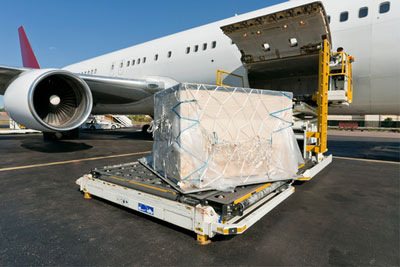IATA air freight data for August 2020 outlines slower than expected recovery
- Like
- Digg
- Del
- Tumblr
- VKontakte
- Buffer
- Love This
- Odnoklassniki
- Meneame
- Blogger
- Amazon
- Yahoo Mail
- Gmail
- AOL
- Newsvine
- HackerNews
- Evernote
- MySpace
- Mail.ru
- Viadeo
- Line
- Comments
- Yummly
- SMS
- Viber
- Telegram
- Subscribe
- Skype
- Facebook Messenger
- Kakao
- LiveJournal
- Yammer
- Edgar
- Fintel
- Mix
- Instapaper
- Copy Link
Posted: 1 October 2020 | International Airport Review | No comments yet
Global air freight demand fell by 12.6 per cent in August 2020 when compared to 2019 as a result of insufficient capacity due to grounded passenger aircraft fleets.


The International Air Transport Association (IATA) has released new data for global air freight markets in August 2020, showing that improvement remains slow amid insufficient capacity.
Demand moved slightly in a positive direction month-on-month; however, levels remain low when compared to 2019. Improvement continues at a slower pace than some of the traditional leading indicators would suggest. This is due to the capacity constraint from the loss of available belly cargo space as passenger aircraft remain parked.
Global demand, measured in cargo tonne-kilometers (CTKs), was 12.6 per cent below previous-year levels in August 2020 (14 per cent for international operations). That is a modest improvement from the 14.4 per cent year-on-year drop recorded in July 2020. Seasonally-adjusted demand grew by 1.1 per cent month-on-month in August 2020.
Global capacity, measured in available cargo tonne-kilometers (ACTKs), shrank by 29.4 per cent in August 2020 (31.6 per cent for international operations) compared to the previous year. This is basically unchanged from the 31.8 per cent year-on-year drop in July 2020.
Belly capacity for international air cargo was 67 per cent below the levels of August 2019, owing to the withdrawal of passenger services amid the COVID-19 pandemic. This was partially offset by a 28.1 per cent increase in dedicated freighter capacity. Daily wide-body freighter utilisation is close to 11 hours per day, the highest levels since these figures have been tracked in 2012.
IATA’s Director General and CEO, Alexandre de Juniac, said: “Air cargo demand improved by 1.8 percentage points in August 2020 compared to July 2020. That’s still down 12.6 per cent on previous year levels and well below the 5.1 per cent improvement in the manufacturing PMI. Improvement is being stalled by capacity constraints as large parts of the passenger fleet, which normally carries 50 per cent of all cargo, remain grounded. The peak season for air cargo will start in the coming weeks, but, with severe capacity constraints, shippers may look to alternatives, such as ocean and rail, to keep the global economy moving.”


















